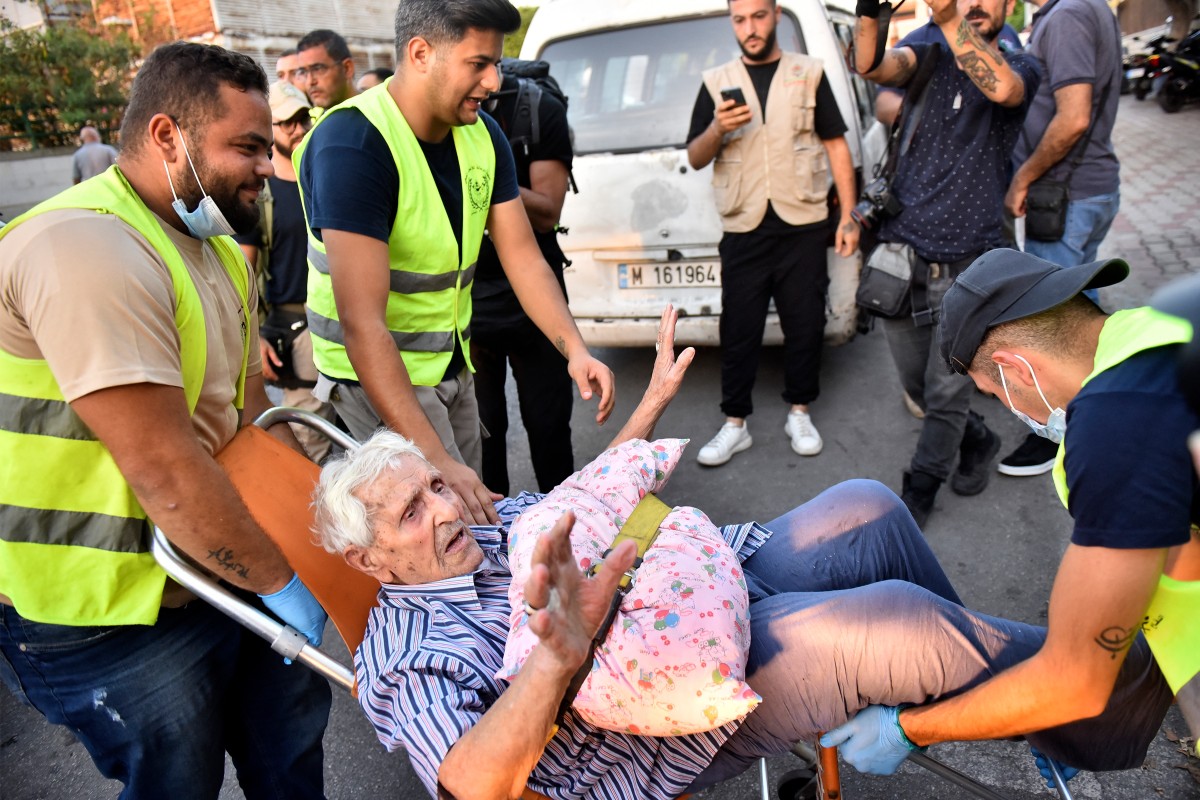Beirut, Lebanon: On Sunday, Israeli troops stormed the Al Jazeera office in the occupied West Bank and issued a 45-day closure order. A day later the Jewish state launched a murderous campaign in neighboring Lebanon, killing at least 350, including 24 children.
Simultaneously, the Israeli military called on residents of southern Lebanon to immediately evacuate homes and other buildings where it claimed Hezbollah stores weapons.
The Israeli army released a 3D simulation video to bolster this claim that many Lebanese citizens said was propaganda aimed at manufacturing consent to wage war on Lebanon.
“I am from the South and there are no weapons in my house. And none in my neighbor’s house or the next village’s houses. What they’re doing in Gaza is not enough, they are now launching a full-scale attack on a second front to destroy neighboring Lebanon which is already under much pressure,” an X user wrote.
Preventing one of the pre-eminent broadcasters from covering a brutal military campaign and claiming entire communities have been turned into weapons storage is a multifaceted propaganda campaign that seeks to align domestic, international, and military perspectives to gain support for — or silence on — the Israeli campaign against Hezbollah and Lebanon.
There is a precedent to this propagandist build-up. Israel carried out some of the widely condemned bombardments in Gaza on the back of similar claims since Oct. 7 last year.
Israeli troops stormed Gaza’s largest hospital, Al Shifa, and detained its chief in November 2023 saying that Hamas used it as a “command center”. The military claimed it had recovered some rifles and a laptop.
Journalist Jeremy Scahill, formerly with The Intercept, described the claims, backed by the Biden administration, as a “lethal lie”. He pointed to the ridiculousness of the Israeli military’s announcement that it found a rifle behind an MRI machine.
Scahill likened Israel’s Al Shifa propaganda to the George W Bush administration’s “lies about Iraqis pulling babies out of incubators”. Amnesty International also said it didn’t see any credible evidence to support the Israeli claim.
The Israeli tactic to make such claims to build a case for strikes is not new. More than a year before the Gaza eruption in October last year, in July 2022, Israel had published images that its officials said showed weapons depots and tunnels in Gaza near a school, a Pepsi factory, and other buildings and accused Hamas of deliberately hiding them in civilian areas.
Israeli military’s “drone footage” claimed tunnels and weapons production sites in densely populated civilian areas including near Al-Shifa Hospital and the Islamic University of Gaza which was destroyed completely during the ongoing ground and air assault on the Palestinian strip.
Hamas had warned that “these are lies the occupation is circulating to justify its crimes against innocent civilians during the wars it conducted against Gaza.”
“We warn that these lies may be a pretext to commit more crimes against civilians,” Hamas said then.
Demonizing Hezbollah
A central aspect of Israel’s propaganda is its portrayal of Hezbollah, which has carried out attacks on Israeli troops in retaliation to the killing of thousands of Palestinians in Gaza, as an existential threat not only to Israel but to regional stability.
This framing taps into international fears about terrorism and extremism. By portraying Hezbollah as a terrorist organization rather than a legitimate political actor in Lebanon, Israel seeks to delegitimize any claims that Hezbollah might make in defense of Lebanese sovereignty and Palestinian rights.
Israeli officials have increasingly equated Hezbollah with Iran, amplifying fears of Iranian expansionism in the Middle East. Given the global anxieties surrounding Iran’s nuclear ambitions and its influence in conflicts like the Syrian civil war, Israel’s attempt to link Hezbollah to these broader fears finds a receptive audience internationally.
Through this lens, any action Israel takes against Hezbollah can be framed as part of a wider fight against Iranian influence, aligning with the geopolitical goals of countries like the United States, which views Iran as a key adversary.
“Preemptive Strike” doctrine
Another significant element of Israel’s propaganda campaign is the concept of a preemptive strike for “self-defense”. Israeli leaders have repeatedly emphasized that Hezbollah’s growing military capabilities—especially its missile arsenal—pose a danger to Israeli civilians, rationalizing any invasion of Lebanon as a defensive maneuver rather than an act of aggression.









